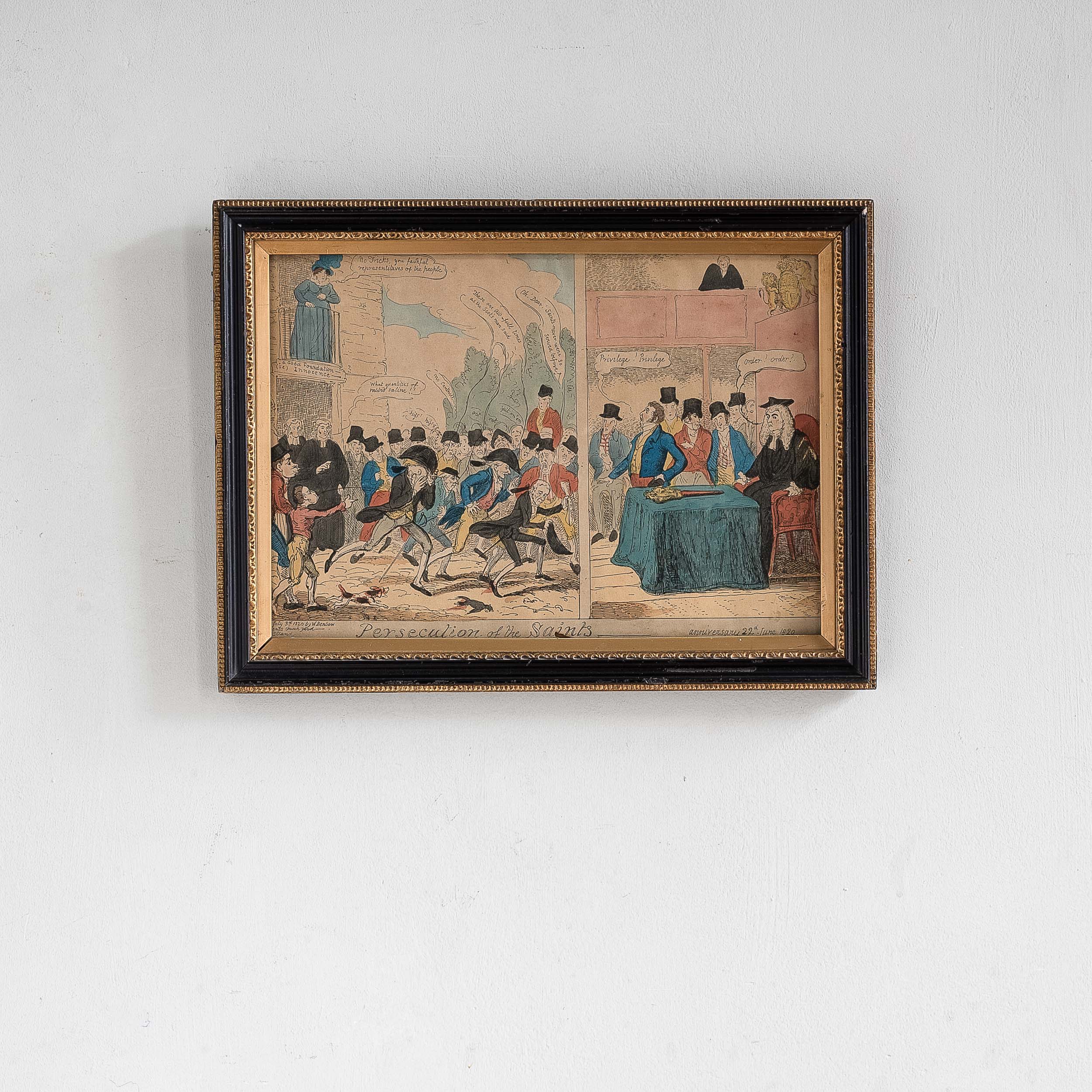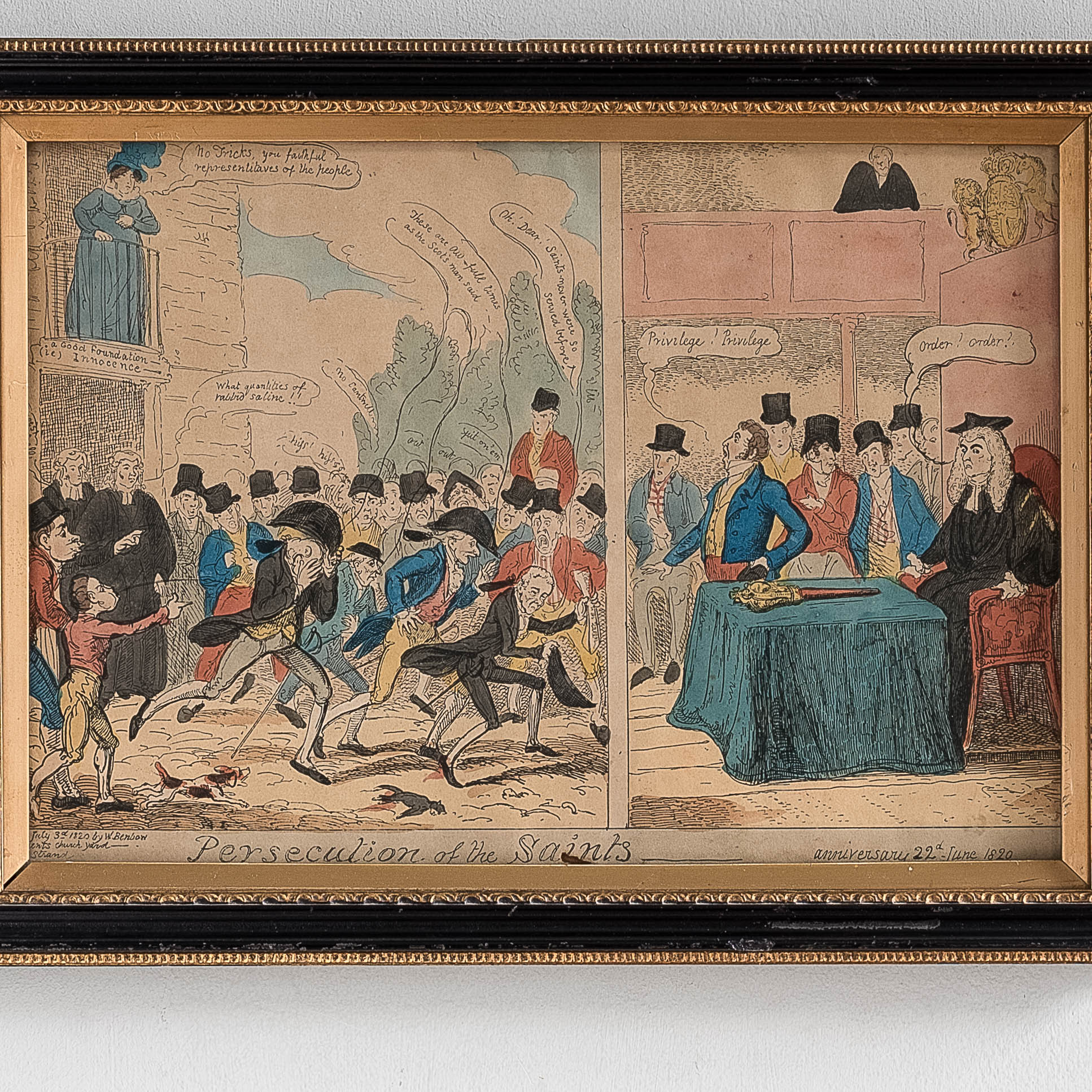No products in the basket.
Persecution of the Saints.
George Cruikshank, 1820
An original hand coloured etching by George Cruikshank.
On 6 June 1820, Queen Caroline, estranged wife of George IV, returned from her exile on the continent, claiming her right to be crowned as Queen. The perceived harsh treatment of the Queen by the King and his Tory supporters caused her to become a figurehead for the political unrest that had been made worse by the Peterloo Massacre of 16 August 1819.
In a desperate effort to rid himself of this turbulent wife George the IV ventured to have Caroline found guilty of adultery - the only legal justification for divorce at the time. All the while the King had preempitvely caused Caroline's name to be omitted from the Prayer for the Royal Family in churches throughout England.
With tensions rising and both sides digging in over the contest the cause of Queen Caroline began to assume for the parties involved a symbolic and totemic significance. Queen Caroline, to the Whigs and Radicals represented injured honesty and probity in public life while her exclusion from the coronation and regal honours stood for the debasement of the constitution and the irregular, arbitrary and incompetent tyranny of the Tory loyalists. The situation was becoming so febrile that many feared political and factional violence was inevitable.
Into this contest stepped William Wilberforce, the great independent MP and abolitionist campaigner. The small informal group of evangelical Christians who surrounded him in Parliament were known, perhaps mockingly, as The Saints. Wilberforce thought that by the force of his own unimpeachable integrity he could persuade Caroline to abdicate some of her rights as the Royal consort and thereby forestall what had begun to look like a revolutionary confrontation.
Wilberforce attended at the Queen's residence on Portman Street in West London and presented a Motion for an Address to the Queen. He had been encouraged by Lord Brougham to believe that the Queen would accept the omission of her name from the public prayers. The Queen, standing in her rights and her honesty, flatly refused. Meanwhile the Radical London mob appears to have cajolled and roughed-up the sanctimonious delegation as they fled for their safety back to the House of Commons.
As a result of the failure of Wilberforce’s attempts at mediation led to the trial of Queen Caroline and subsequent exclusion from the coronation ceremony.
£220
In stock


